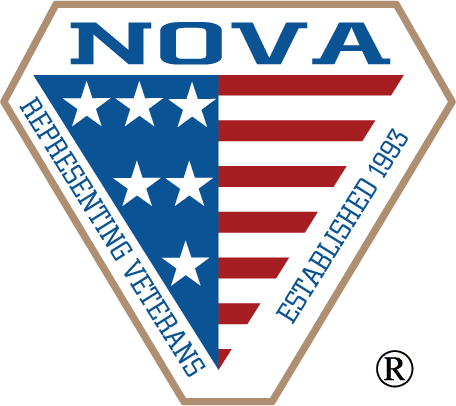Are you a veteran who has trouble maintaining steady work? Been out of work for a long time? Or still working but not sure how much longer you can continue before your service-connected disabilities force you to stop working?
If any of those sound familiar to you, you probably should consider whether TDIU is an option for you. TDIU (also known as Total Disability Based on Individual Unemployability, Individual Unemployability, or IU) provides higher levels of compensation to account for the more pronounced earnings impairment from the service-connected disabilities.
The two steps to qualify for TDIU
Many veterans, however, are surprised to learn that qualifying for this benefit has two parts. The inability to secure or keep substantial gainful employment is really the second part of the TDIU test. More on that later. The first is what we call the schedular requirements test, which is what we will discuss here.
Under this schedular requirements test, there are two possible scenarios: those in which the veteran has multiple service-connected disabilities and those in which the veteran only has one service-connected disability.
If you are a veteran with only one service-connected disability and are interested in trying to attain TDIU entitlement, there are a few things to know and a few possible strategies to employ if your current rating does not satisfy the schedular requirements for TDIU.
Per 38 C.F.R. § 4.16(a), if there is one service-connected disability it “shall be ratable at 60 percent or more” to satisfy this first prong of the two-prong TDIU test.
What to do if you don’t have one disability at 60% or more
So, what should a veteran do if they do not have one disability rated at 60% or more?
There are two possible options:
- increase the current disability to the 60% level or
- consider service connecting other disabilities to get the overall rating to 70%.
We will discuss option 1 here. If you ultimately decide that option 2 is better, please refer to our article on multiple disabilities for additional information more specific to that situation. It may be best to learn a bit about both and then decide what is the best course of action for you.
Another option is to pursue both an increase in your already service-connected disability and try to win service connection and ratings on other disabilities as well. This “all of the above” approach may increase your chances of meeting the TDIU schedular requirements, although that of course will require more effort and potentially more expense in the form of medical evidence. You, with your attorney or VSO if you have one, will need to decide whether you are better off focusing on increasing the current disability or expanding the scope to include other disabilities to increase your chances for TDIU eligibility.
Not all disabilities will help you – first determine what ratings are possible
When you are deciding whether to focus on an increase in your one disability to 60% or more or try to achieve a 70% combined rating with multiple disabilities, the question is the same: What rating is possible for the disability under consideration?
To answer this question, you will need to know what the possible ratings are for your service-connected disability and any other potential ones. You will find this answer in the VASRD (Veterans Affairs Schedule for Rating Disabilities.
If you are going to try to increase your current rating to 60% or more, you need to know if the ratings schedules even allow for this without extraschedular consideration. Without going into too much detail here, an extraschedular evaluation is an exception to the general rule for how a particular disability is rated by VA. Therefore, it will not apply in the vast majority of circumstances. So, check the VASRD (Veterans Affairs Schedule for Rating Disabilities) to know what the various ratings are for your disability.
Some common military disabilities ratable at 60% or more
Not all service-connected disabilities have a rating as high as 60%. Many have a maximum schedular rating of 30% or 50%. However, there are quite a few that do have possible ratings of 60% or higher. Some of the more common ones we see in veterans’ cases include:
- mental health disorders, such as post-traumatic stress disorder (PTSD), depression, anxiety, and schizophrenia to name a few
- various cardiac related disabilities, including but not limited to coronary artery disease and hypertensive vascular disease
- various respiratory disabilities, including but not limited to asthma, COPD, bronchiectasis, and asbestosis
- chronic kidney disease, and
- Parkinson’s disease
Analyze your specific disability according to VA’s schedule for rating disabilities to see what rating is likely
After establishing what ratings are theoretically possible for your disability, the next step is to determine what is reasonably likely in your situation depending on the level of symptoms you are experiencing with the disability. In short, what is possible and what is likely?
Here is an example: You have a single-service connected disability, which is PTSD with a 50% rating. A quick look at the possible ratings in the VASRD lets you know that 50% is not the maximum rating; there is in fact a 70% and 100% schedular rating possible for this disability. So, the next step is then to look at the criteria for a 70% rating and make a judgment call on whether or not you meet that standard. This is a situation that we have handled for numerous veterans; many of our TDIU cases involve only one mental health disability of 70%.
Based on that information, you can conclude that pursuing an increase on this disability is viable. However, if you service-connected disability was allergic or vasomotor rhinitis, the VASRD would tell you that the maximum schedular rating possible is 30%. So, any effort on your part to obtain an increase (without getting into extraschedular consideration) would be futile; a 60% schedular rating for that condition is not possible.
Only then do you move on to the next step
By focusing on only those disabilities that have the likelihood of getting you the necessary rating, you can maximize your chances of getting to where you need to be ratings-wise for the initial prong of the TDIU test. At that point, you move on to the “real question” at hand – does your service-connected disability prevent you from getting or keeping a job?
Unfortunately, many veterans neglect this first prong of meeting the ratings requirements because it seems so clear to them that their service-connected disability prevents them from getting or keeping a job. What those veterans don’t realize is that the real stumbling block is this initial requirement of meeting the schedular requirements of TDIU: one disability rated at 60% or more (or one at least 40% disabling and a combined rating of 70% for all disabilities, which is discussed in another article here).
This is where an experienced VA disability attorney can dig into your case and see the real reasons VA is denying the claim and what can be done about it. This is really just an overview presented here; there are some exceptions that we will cover in later articles. In the meantime, if you have questions about your potential entitlement to Total Disability Based on Individual Unemployability (TDIU), please reach out to us for a free consultation with our VA disability team to see if we might be able to help.






